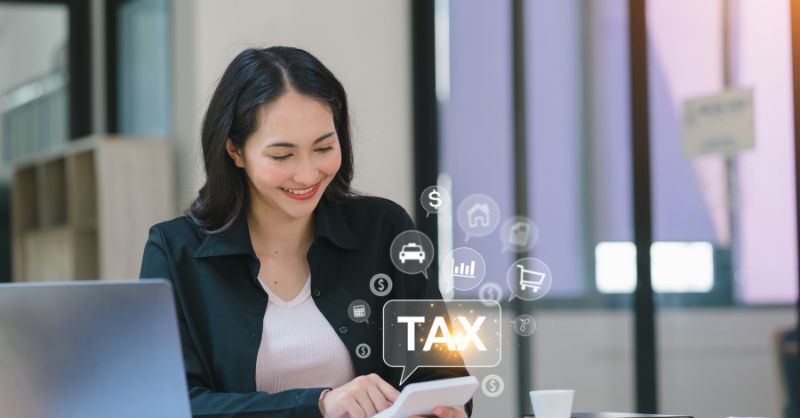 UK Self Assessment Tax Return Diploma
UK Self Assessment Tax Return Diploma
UK Self Assessment Tax Return Diploma is designed for those eager to develop confidence in managing personal or business taxation within the UK. Covering every essential step, this programme provides clear guidance on how the self-assessment system operates, how to compile income records, apply reliefs, and finalise accurate submissions. Students will explore core areas such as income tax, capital gains, deductions, and compliance while discovering efficient approaches to filing returns correctly. Since errors in returns can lead to penalties, the diploma is structured to help learners minimise risks and prepare returns with clarity. This self-assessment tax return course also introduces planning strategies for better outcomes. By studying this online pathway, you will strengthen your tax knowledge and expand career prospects in finance or administration.
 Course Description
Course Description
Managing taxes can often feel overwhelming, especially when regulations are frequently updated. The UK Self Assessment Tax Return Diploma online simplifies the process, offering step-by-step learning through real tax concepts and structured modules. Unlike general finance courses, this programme focuses exclusively on self-assessment, ensuring that learners leave with actionable knowledge directly applicable to both personal and professional settings.
The curriculum has been carefully designed to reflect current HMRC requirements. From gathering documents to applying deductions and handling capital gains, each unit introduces vital elements needed to complete returns confidently. Since the tax environment requires accuracy and compliance, learners will discover essential ways to reduce errors while improving their efficiency in managing deadlines and obligations.
This tax returns course is also suitable for individuals seeking to expand their employability. Whether you are looking to learn how to do self assessment tax return for personal use, assist others, or improve your financial administration expertise, this programme provides the right foundation. With the growing demand for individuals who can navigate the system, completing this UK self assessment tax return diploma can unlock rewarding career paths across industries.
 Learning Outcome
Learning Outcome
- Apply knowledge of UK tax regulations when completing self-assessment returns.
- Accurately calculate income tax, capital gains, and eligible deductions.
- Prepare and organise financial documents for compliance purposes.
- Evaluate available reliefs and credits to optimise outcomes.
- Identify key deadlines and maintain accurate reporting to avoid penalties.
 Who Is This UK Self Assessment Tax Return Diploma For?
Who Is This UK Self Assessment Tax Return Diploma For?
- Individuals seeking to improve financial literacy in taxation.
- Professionals in administration or finance wishing to add tax skills.
- Business owners aiming to handle their own self-assessment filing.
- Graduates looking to enhance their CV with tax qualifications.
- Anyone keen to learn how to do self assessment tax return independently.
 Career Path
Career Path
- Tax Advisor – Average Salary: £42,000 per year
- Finance Manager – Average Salary: £58,000 per year
- Compliance Officer – Average Salary: £45,000 per year
- Chartered Accountant – Average Salary: £55,000 per year
- Payroll Manager – Average Salary: £47,000 per year
- Corporate Finance Analyst – Average Salary: £52,000 per year
 Frequestly Asked Questions
Frequestly Asked Questions
A Level 4 Certificate in Self Assessment Tax is a recognised UK qualification that focuses on tax compliance, filing, and advisory services. It equips learners with the ability to prepare, review, and submit self-assessment tax returns in line with HMRC rules.
To become a tax specialist in the UK, you typically need a relevant qualification such as ATT (Association of Taxation Technicians) or CTA (Chartered Tax Adviser). Studying tax-focused diplomas, such as self-assessment tax return courses, is an excellent starting point. You can then gain employment in accountancy firms or finance roles and build expertise in taxation.
Certified tax advisors in the UK earn an average salary ranging from £40,000 to £65,000 annually, depending on experience, employer, and location. Senior consultants or those with niche expertise can earn more.
Yes, bookkeepers in the UK can prepare and submit self-assessment tax returns if they are competent and, where required, registered with HMRC as an agent. However, many clients prefer certified accountants or tax advisors for complex cases.
While most bookkeepers in the UK earn between £25,000 and £45,000 annually, reaching £100,000 is possible but uncommon. Typically, this level of income is achievable if you run a successful bookkeeping practice with a large client base or expand into tax consultancy and financial advisory.
Yes, to work as a self-employed bookkeeper in the UK, you must register with HMRC for anti-money laundering supervision or join a professional body such as ICB (Institute of Certified Bookkeepers) or AAT (Association of Accounting Technicians). This ensures legal compliance and builds client trust.
Curriculum
-
Module 01: Tax System in the UK
00:15:00
-
Module 02: Submit a Self-Assessment Tax Return
00:06:00
-
Module 03: Gathering and Organizing Documents
00:15:00
-
Module 04: Income Tax
00:18:00
-
Module 05: Advanced Income Tax
00:22:00
-
Module 06: Expenses and Deductions
00:16:00
-
Module 07: Capital Gain Tax
00:15:00
-
Module 08: Tax Credits and Reliefs
00:15:00
-
Module 09: Completing the Self-Assessment Tax Return
00:17:00
-
Module 10: Tax Planning and Compliance
00:18:00
-
Feedback
00:01:00
-
Get Your CPD Certificate
00:01:00
Offer Ends in

Or
 All
Courses for £49
All
Courses for £49
14-Day Money-Back Guarantee
-
Duration:2 hours, 39 minutes
-
Access:1 Year
-
Units:12



.png) 4 Reviews
4 Reviews 42 Students
42 Students



